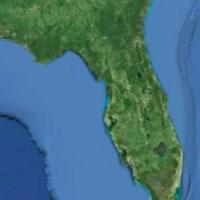Meddelanden: 20
Språk: English
sudanglo (Visa profilen) 16 februari 2014 12:06:41
But if one's knowledge of Esperanto were confined to the 16 rules and study of the Ekzercaro, what essential grammar points would you not have covered?
pS How do I edit the typo in the topic?
lagtendisto (Visa profilen) 16 februari 2014 13:52:26
sudanglo:But if one's knowledge of Esperanto were confined to the 16 rules and study of the Ekzercaro, what essential grammar points would you not have covered?PMEG already has minimalistic idea behind. I think Bertilow very well analysed what needs to be in some minimalistic linguistic work which takes linguistic difficulties encounted at Esperanto events and prescribe it later inside PMEG according Zamenhof's Fundamento.
sudanglo (Visa profilen) 17 februari 2014 13:36:32
Anyway if you read texts from the early 1900's in Esperanto, it would seem that the pioneers did remarkably well long before the epoch of PAG.
Hundies19 (Visa profilen) 17 februari 2014 19:40:28
Rejsi (Visa profilen) 17 februari 2014 23:18:48
sudanglo:Don't get me wrong. PMEG and especially PAG are works of considerable scholarship.This is mildly off topic, but what is PAG? I've never heard of it before.
But if one's knowledge of Esperanto were confined to the 16 rules and study of the Ekzercaro, what essential grammar points would you not have covered?
pS How do I edit the typo in the topic?
Rikat (Visa profilen) 18 februari 2014 00:29:24
Read more and find a link to a downloadable version here.
sudanglo (Visa profilen) 18 februari 2014 11:02:21
How were the early Esperantists able to write so well in Esperanto without these voluminous works of grammar reference?
erinja (Visa profilen) 18 februari 2014 14:57:32
Rugxdoma (Visa profilen) 18 februari 2014 20:51:17
erinja:Early esperantists who spoke several European languages would have been able to deduce this easily by looking at the ekzercaro and other early sample texts. I suspect that the educated European of that time would have spoken several languages, at least one of which was likely French.Yes, and even less well educated Europeans, with no knowledge of romance languages, could often deduce this. One reason is that they often had studied some grammar at school, grammar of their own language, which could help them to structure information present in the Ekzercaro. And also, more or less the same basic assumptions about how to form prases, sentences etc are presupposed by all Europeans. That is true both for speakers of a Germanic language like Swedish and for Finnish persons, speaking a fenno-ugric language. For Chinese students however, even after vast study of the Ekzercaro, it may be extremely difficult to get an idea of these general principles for sentence building, which Europeans have inherited from latin.
sudanglo (Visa profilen) 19 februari 2014 13:33:44
However there were certainly Japanese Esperantists in the early days.
And nowadays most educated orientals will have some knowledge of a European language, most likely English.
So maybe the 16 rules and the Ekzercaro are still sufficient, to grasp the essential grammar of Esperanto.






